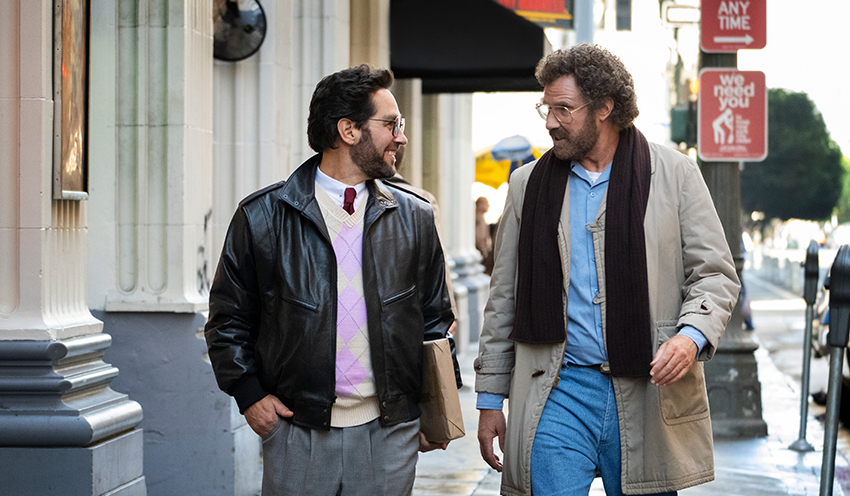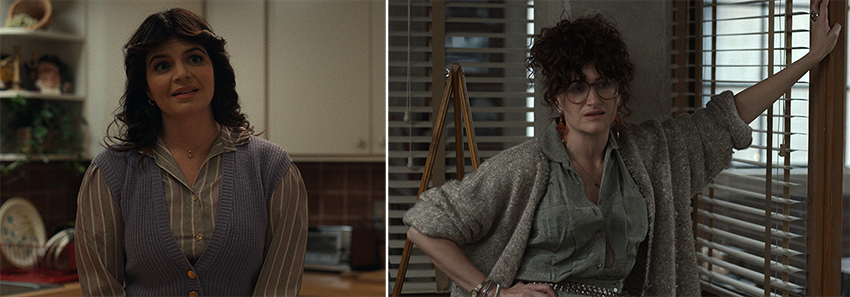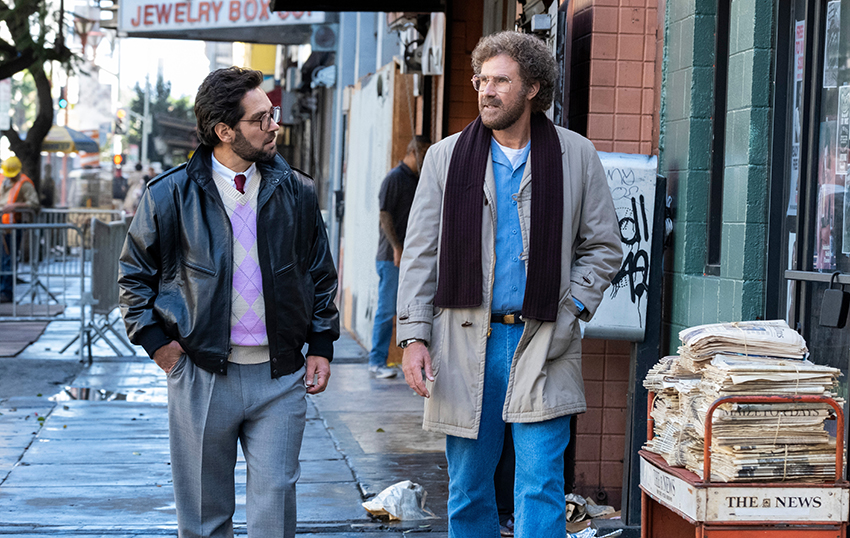Comedians Get Serious in New Apple TV+ Drama The Shrink Next Door
The unflinching true story of a therapist’s multimillion-dollar manipulation stars Will Ferrell, Paul Rudd and Kathryn Hahn.

Name: The Shrink Next Door
Where: Apple TV+
What: Series, 8 episodes, 40 mins
When: Fri., Nov. 12, followed by one new episode each Friday through Dec. 17
Genre: Drama
Why you should watch: Based on the Bloomberg podcast of the same name, this pit-in-your-stomach watch dives headfirst into the true story of a power-hungry New York therapist conning his patient out of millions of dollars and into controlling his entire life.
The Shrink Next Door is an unflinching story of therapy turned multi-million-dollar manipulation.
With comedy stars Will Ferrell, Paul Rudd, Kathryn Hahn and Casey Wilson leading the cast, one might assume this true story would be a quirky Judd Apatow-type production about the shenanigans millionaire textile businessman Martin “Marty” Markowitz and his charming therapist, Dr. Isaac “Ike” Herschkopf get up to together.
Spoiler alert: it’s not.

Based on the Bloomberg podcast The Shrink Next Door, the Apple TV+ drama is a deep and compassionate study of the bizarre, manipulative relationship between Marty (Ferrell) and Ike (Rudd). When Marty first went to therapy in the early ’80s, he just needed a little help regaining control of his life in the midst of a personal crisis. Over the course of three decades, Ike cut Marty off from his only surviving family — his loving sister, Phyllis Shapiro (Hahn) — in order to booze and schmooze his way up the Manhattan social ladder with his patients’ funds. He even climbed so high that he reportedly became Gwyneth Paltrow’s and Courtney Love’s personal shrink … but that’s a story for another time.
The day before the cast and crew is set to watch the finished series with the real Marty and Phyllis in New York, I catch up with the quippy and delightfully British writer Georgia Pritchett — perhaps her previous writing projects Veep, Succession and Spice World ring a bell? — and wisecracking cast members Kathryn Hahn and Casey Wilson. Framed by a floor-to-ceiling bookshelf in a beautiful and bright room at the Crosby Street Hotel (they’ve got the full press day shebang going on), they talk about the pressures of portraying a true story, tackling a drama with a troupe of comedians and the eerie pervasiveness of manipulation.
Portraying Real People
“I’m nervous because I think I swear more in real life than Phyllis would,” Hahn throws out self-deprecatingly. Her immediate humour and ease reflect her brilliant performance as Phyllis, a no-bullshit, born-and-bred Jewish New Yorker whose dry witticisms provide desperately needed comedic relief in the stomach-knotting story.

“We Zoomed a couple of times,” she explains, referring to speaking with Phyllis, “I hold those conversations very dear to my heart. She trusted me with a lot. I really tried to hold on to her essence through the shooting of the series.”
Pritchett continues, “I met Marty and Phyllis, I spoke to some of Ike’s other patients. I’d seen a few shows where there was a goodie or a baddie, and I didn’t want to be that reductive. I tried to tell it from a much more objective point of view, where the viewer goes on the journey Marty goes on. Meeting Ike, who seems charismatic and helpful, and then just get swept along.”
Comedians Do Drama
“For me, it was exercising a different muscle, one I always have wanted to do more of. It felt great to act with more serious material,” Wilson, an SNL alum who plays Ike’s wife, Bonnie, says.
“When it was time to get serious, we got serious. Because some of the stuff was pretty heavy. But nobody’s precious. It was a delicious group of human beings,” Hahn raves.
“I never told you this,” Wilson starts laughing as she turns to Hahn, “when I wrapped filming, I started bawling when Will Ferrell hugged me. I was crying into his arms for an uncomfortable length of time. He received it so nicely.”

“This could happen to any of us”
Rudd and Ferrell have been partners in comedy since they were the heavily moustached Brian Fantana and Ron Burgundy in outlandish news satire Anchorman — so, viewers are primed to expect some funny-guy antics. When Ike and Marty’s relationship buds as a bromance that involves throwing Marty a second-chance bar mitzvah, it feels right. When Rudd’s natural charm comes through in his performance, that feels right, too. But when his character’s charisma grows nefarious edges, it becomes clear that Ike was slowly releasing his poison the entire time.
“In a very shallow way, I thought Marty would be sort of introverted and socially awkward and a bit odd,” Pritchett says of meeting the real Marty. “And actually, he’s utterly charming and intelligent and gregarious. My aim was to say, ‘This could happen to any of us.’ We could all be Marty.”
She continues, “We all felt that, more than ever, it was an important story to tell. So many things felt relevant — in terms of the Trump presidency, the pandemic, what’s true, what’s lies, what’s fake news?”
Pritchett’s bold writing dares to understand the psyche of the “other.” The series unpacks Ike’s personal baggage and traumas to better comprehend how he was capable of such manipulative monstrosities. It doesn’t go so far as to paint him sympathetically, but it does allow viewers to watch his gears tick. In our increasingly polarized political and social reality, venturing to understand the “other” is something we could use a lot more of — The Shrink Next Door comes at a critical cultural juncture.





